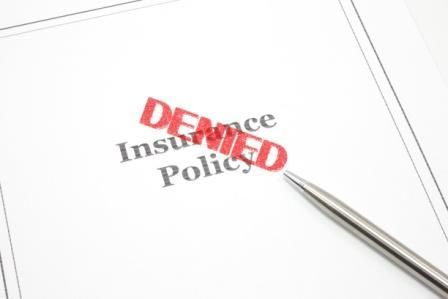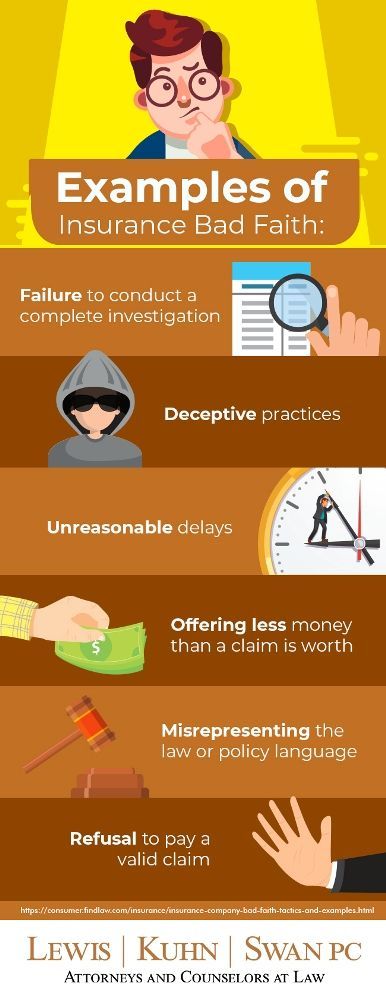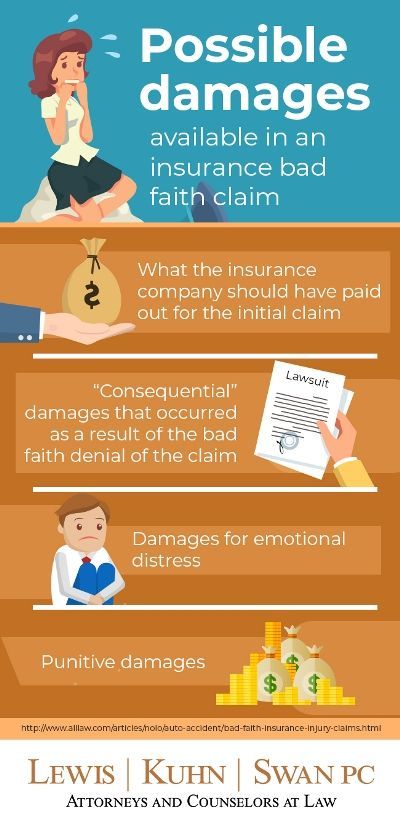Call Now: 719-694-3000
Insurance Bad Faith Lawyers
Employment, Insurance, Malpractice, and Estate Attorneys Serving Denver, Colorado Springs, Pueblo, Castle Rock & Nearby Colorado
Insurance Bad Faith Attorney In Denver & Colorado Springs
You buy insurance for peace of mind, trusting that your insurer will be there for you when you file a legitimate claim.
Case Types
Unfortunately, many policyholders discover that when they most need their insurance benefits, whether dealing with damage to their homes, suffering a severe injury, mourning the loss of a family member, or in another serious situation, insurers refuse to pay fair and adequate compensation. As an insurance consumer, you have rights. Leventhal Swan Taylor Temming PC can help protect your rights and fight insurance companies who try to delay, reduce, or deny your valid claim.
If you live in the Denver, Colorado Springs, Pueblo, or Castle Rock, CO areas and need an experienced law firm you can trust, call Leventhal Swan Taylor Temming PC today at 719-694-3000 to begin building your case.
Read more about bad faith cases:
- What is insurance bad faith?
- Insurance denial
- Common examples of insurance bad faith
- First-party bad faith claims
- Third-party bad faith claims
- Car insurance bad faith
- Home insurance bad faith
- Medical insurance bad faith
- Disability insurance bad faith
- Life insurance bad faith
What Is Insurance Bad Faith?
Insurance companies have a duty to work fairly with their customers. If you have a policy with an insurer, that contract must be honored at all times. In the event of a claim, your insurance provider must thoroughly investigate your case and communicate attentively with you. Unfortunately, the thorough investigations performed by insurance companies are almost always designed to find ways to deny or minimize legitimate claims.
When your insurer fails to honor its contractual obligations with you, you may have a claim for bad faith. Successful bad faith claims hinge on the following elements:
- You and your insurer entered into a contract
- You fulfilled your contractual obligations
- All the conditions required for your insurer to act had occurred
- Your insurer unfairly interfered with your right to receive the benefits of your contract
- You were harmed by the conduct of your insurance company
Insurance bad faith claims typically arise when an insurance company denies, delays, or diminishes the value of your settlement. In most cases of insurance bad faith, the harm you suffer as a result of your insurer’s wrongdoing is an unjust financial burden.
Insurance Denial
Insurance companies are in the business of making money, not paying settlements. While they almost always do their best to offer their customers as little as possible, they also work to find ways to deny claims flatly. It’s important to realize that many insurance companies reward employees who deny claims. Unfortunately, many people just give up when their providers claim that a particular event or procedure isn’t covered under their policy without digging for the truth.
There are a number of ways your insurance company may try deny your coverage, including:
- Refusing to pay for an expensive procedure
- Claiming a procedure is experimental despite your doctor’s opinion
- Refusing to pay for a pre-approved procedure after it has been completed
- Claiming your condition is pre-existing without sufficient proof
- Refusing to pay for “out of network” emergency care when you were in no condition to secure pre-approval

Common Examples of Insurance Bad Faith
Bad faith encompasses more than just your insurance company denying your valid claim. Insurers frequently engage in behaviors that can cause harm to their customers, such as:
- Grossly understating the value of your claim
- Failing to explain your rights as a policy holder
- Changing the terms of your policy agreement without your knowledge or consent
- Unreasonably interpreting policy language
- Delaying an investigation without cause
- Unjustly delaying a payment
- Poorly or inadequately investigating a claim
It’s normal for there to be some back-and-forth negotiations between you and an insurance adjuster. You and the adjuster may disagree on the value of your claim and you may not be offered what you think you deserve. These disputes alone do not necessarily constitute bad faith.
However, there is common misconception that insurance companies have a right to low-ball claims. They do not have the right to pay less than the value of a claim. If you believe your claim is being unjustly denied and grossly reduced, contact our office.
First-Party Bad Faith Claims
First-party bad faith occurs when your insurance company fails to settle your claim in a reasonable amount of time or for a reasonable amount of money. This includes a variety of behaviors we have discussed above, such as unreasonably denying a claim, prolonging payment, proposing an unreasonably low settlement amount, and more.
Third-Party Bad Faith Claims
While first-party bad faith is characterized by an insurance company’s misconduct toward its own policyholder, third-party bad faith relates to claims made against someone else’s insurer. This type of bad faith may occur if you’ve suffered injuries as the result of another person’s negligence; that person’s insurance company is liable for your damages.
Some examples of third-party bad faith include:
- Refusing to defend a lawsuit
- Undo delay
- Threatening the insured parties
- Inadequately investigating a claim
- Refusing to make a reasonable settlement offer
If a third party’s insurance company commits any of the actions listed above, it can be held liable for bad faith.

Car Insurance Bad Faith
For most people, car travel is a daily part of life. Colorado law requires every driver in the state to carry liability insurance, but there are other types of policies many drivers choose to carry, such as:
- Comprehensive coverage
- Uninsured motorist
- Towing/rental car
If you’ve been injured in an accident, you rely on insurance to do the right thing and treat you fairly. You may be facing mounting medical bills, pain and suffering, and time away from work that you and your family can’t afford. Unfortunately, insurance companies often put their best interests before yours, and offer you far less than you need or nothing at all.
You don’t have to accept whatever the insurance company offers you. Our knowledgeable attorneys can help you pursue the full and fair compensation you need to get back on track.

Home Insurance Bad Faith
Purchasing a home is one of the biggest investments you will make, and you want to make sure your investment is protected. Most times, that protection comes in the form of property insurance. Depending on your policy, homeowner’s insurance may help to protect your home, belongings, and well-being if the unexpected occurs.
There are usually four types of protection:
- Dwelling coverage: This type of coverage is intended to repair or rebuild your home in the event of hail, wind, lighting, flood, or fire and smoke.
- Personal property coverage: This coverage may help reimburse you for the value of your personal belongings after a covered loss, such as furniture, electronics, and clothing.
- Coverage of other structures: Catastrophes can affect more than just your home. Other structure coverage can help pay for the repair or replacement of structures not attached to your home, like a shed, fence, or detached garage.
- Liability coverage: No matter how careful you are, accidents can happen. Liability insurance is meant to cover expenses related to someone else’s injury or property damage. This type of protection can help cover an injured guest’s medical bills and lost wages, repairs to someone else’s property, and your own legal expenses if you are sued for these damages.
By making regular and timely payments, you expect that in the event of weather-related damage or other catastrophe, your claims process should be fair and simple. However, insurance companies are for-profit businesses; their goal is to minimize their expenditures and maximize their profits.
Your insurer’s findings don’t have to be the final decision. You do not have to accept a payment that is less than you need and deserve. Negotiating a dispute on your own ignores the complexity of the process and the resources and power of your insurer.
At Leventhal Swan Taylor Temming PC, we understand the insurance process and won’t be intimidated by large companies. We aggressively represent property owners whose insurance companies are disputing the coverage and true value of their claims.

Medical Insurance Bad Faith
With the high cost of healthcare, most people carry health insurance to ensure that when they need medical care, they can get the important services they need. When you submit a claim to your medical insurance provider, whether for injury, illness, or a routine doctor’s visit, you need to remember that your insurer is a business who is looking after its own bottom line. Ideally, your insurance company will pay out your claim as stipulated in your policy, but sometimes insurers act in bad faith, and avoid paying legitimate claims.
Every day, health insurance companies make life or death decisions about the coverage of their policyholders. Some insurers try to shirk their responsibilities by claiming:
- The policyholder made a factual error in the original paperwork
- The procedure is not necessary or covered under the policy
- The medical provider is not within network
As a policyholder, you have rights. Insurance companies are held to a covenant of fair dealing and good faith. They are expected to act with your well-being in mind when considering whether or not a settlement offer is in your best interest.
If your insurer has tried to deny a legitimate claim or pay you less than you deserve, contact Leventhal Swan Taylor Temming PC
today to discuss your case.

Disability Insurance Bad Faith
In some cases, an injury is so catastrophic it may hinder your ability to work and provide for yourself and your family. Even in these tragic situations, an insurer will hire experts and launch investigations to deny or challenge your disability insurance claim. Your insurance company may accuse you of not being disabled or claim that your injury was an exclusion in your policy.
If your insurer has tried to diminish, delay, or deny your disability insurance claim, our attorneys can help fight for the justice you deserve. We understand the tactics used by insurance companies to protect their bottom lines, not your best interests. Contact us right away to learn how we can help.
Life Insurance Bad Faith
If you’ve lost someone you love and depend on, life insurance benefits may be crucial to your future and the financial security of your family. Following the death of a policyholder, insurance companies investigate the cause and details of the death. You may find that your insurer will attempt to deny payment by claiming:
- Material misrepresentations in the life insurance application
- A non-covered exclusion was responsible for the death
- There was a lapse in policy
- Proper documentation was not provided by the employer of the deceased
- The death never occurred
In these cases, it’s crucial to have an experienced insurance bad faith lawyer on your side. The skilled attorneys at Leventhal Swan Taylor Temming PC
may be able to help. It costs you nothing to call our office and discuss the merits of your case.
Call our office today
You have a very short window of time in which to pursue an insurance bad faith claim. Call Leventhal Swan Taylor Temming PC today at 719-694-3000 to discuss your case. We help clients throughout the state, including Colorado Springs, Pueblo, and Castle Rock.
Schedule a Case Evaluation
Contact us now!
Homepage FCE Form
We will get back to you as soon as possible.
Please try again later.
By submitting this form, you agree to be contacted by our law firm, either by phone, text or by email.
Disclaimer: Official website of Leventhal Swan Taylor Temming PC The information you obtain on this site is not, and is not intended to be, legal advice. The information provided by Leventhal Swan Taylor Temming PC- Attorneys and Counselors at Law is intended to provide general information regarding employment law and other legal matters including contract disputes, overtime, wage and hour issues, insurance bad faith, probate litigation, trust litigation, legal malpractice, medical malpractice, whistleblower litigation and whistleblower protection, class action lawsuits, and more, for residents near Colorado Springs, Castle Rock, Pueblo, Denver, and other areas of Colorado. This website is not intended for viewing or usage by European Union citizens. We invite you to contact us to request a free, personalized case evaluation and welcome your calls and email. Contacting us does not create an attorney-client relationship. The choice of a lawyer is an important decision and should not be based solely upon advertisements. The outcome of each legal case depends upon many factors and no attorney can guarantee a particular result in any case.
All Rights Reserved | Leventhal Swan Taylor Temming PC | Powered By Convert It Marketing | Privacy Policy
All Rights Reserved | Leventhal Swan Taylor Temming PC | Powered By Convert It Marketing | Privacy Policy

